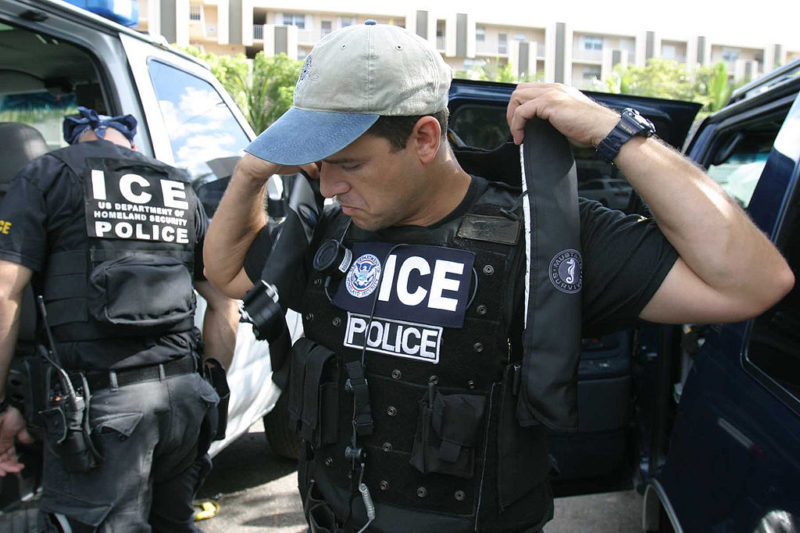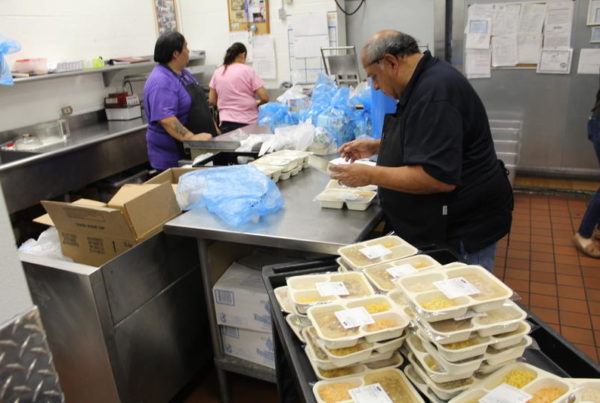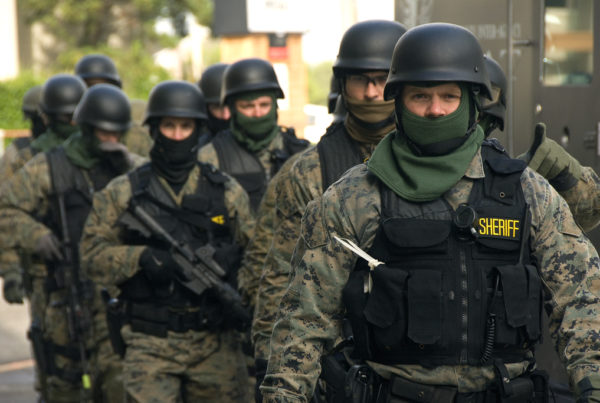Immigration and Customs Enforcement (ICE) raids in Austin this February caught national attention. Many raised questions of whether or not the area was specifically targeted for Travis County’s refusal to fully cooperate with ICE enforcement. ICE officials later denied these allegations in a meeting with a group of federal judges in Austin but new evidence suggests otherwise.
Tony Plohetski, investigative reporter for the Austin American-Statesman and KVUE-TV, reports that evidence is mounting that the raids targeted Austin in retaliation against Travis County Sheriff Sally Hernandez’s limited cooperation with ICE.
Plohetski reports that a magistrate judge said that, prior to the raid, not only were a group of judges warned by ICE officials about the operation and a possible uptick of defendants, but they were also specifically told that the reason for the raid was Hernandez’s lack of cooperation.
Aside from the judge’s claim that ICE officials specifically stated this reason for the raid, the manner in which the raid was conducted – in addition to the type of people who were apprehended – departed from how ICE has normally operated in Austin in the past.
“ICE said early on, ‘We are going after the most dangerous criminals who are here illegally in our communities.’ But then we got these statistics showing that’s not exactly what they did,” Plohetski says. “Federal documents showed of the 51 [arrested], 28 were deemed non-criminals by ICE. That means that they had no criminal record.”
The methods used to find people were also a departure from the previous practice of waiting to pick people up in jail after an arrest.
“What was so alarming to so many people in the community was that what we saw in this instance was ICE actually going onto the streets of Austin, pulling people over, knocking on the doors of their homes, going to their businesses,” Plohetski says. “And in one highly controversial and highly publicized case, arresting a defendant who showed up for a criminal hearing at the Travis County courthouse.”
Plohetski says that even if someone can confirm that the motive for the ICE raids was a retaliation against Hernandez’s policies, he does not see the federal government taking issue with ICE’s actions.
“ICE says that they are tasked by the federal government with going out, finding people who are here illegally and beginning the possible deportation process for those people,” Plohetski says. “They say very affirmatively, ‘We are doing our job, our legally required, legally established, job.’”
Whether the allegations are true or not, the story has brought attention to Austin from across the country as other sanctuary cities consider preparing for raids of a similar style.
“It does now raise a question about ICE’s M.O. in Austin and in cities across the country as well,” Plohetski says.
Written by Emma Whalen.
















